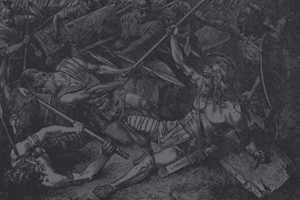Reinventing Estonia
Ragnar Siil
But we need to reinvent the way. And of course young people were more instrumental in doing that. They were quick. Estonia went thought vast and very quick reform package. And many young people were more able to jump on the board and run with it. And from that time on in Estonia unlike many older European countries, if in Estonia there is someone very young becoming a high position it is not a shock. It is not every day. But nobody would tell you: Oh, this is incredible I do not know what happens.
Personally myself I was the youngest state secretary for the arts compared to all my colleagues in Europe when I was working there. But at the same time Estonian prime minister is my age. He has 34 years of age at the moment a young person if you look at this. The first prime minister of Estonia was Mart Laar and when he was appointed he was the youngest prime minister of Europe. He was 30 years old. And at one moment the mayor of Tallinn was 26 or 27. We had ministers of 26, 27, 28, etc.
And there are no exceptions. It is not: Oh, I know somebody. It is quite strong. The point here is that of course Estonians value education. They value experience and education. But in addition they value inspiration, motivation. And they trust. In a sense if they do not exactly know they are ready to trust.
So for example this was exactly the case when we started developing creative industries in 2005. It was just the negotiations for the EU period 2007 - 2013. And I spoke to many of my colleagues from the other countries. And all these countries they wanted to get creative industries in those funding systems.
They wanted this to be included. But at those times there was no real idea what to do with it. I mean it: Okay, creative industry is important. We need to support it. But how? What to do? We had not really heard of creative incubators yet. What is it? What creative clusters? The Hubs? I mean there was one or two. But there was no real understanding. And that was the reason why no new member state got creative industries as special priority included. Because my colleagues were not able to convince the policy makers, that they exactly knew what to do.
In Estonia there was a completely different story. We did not know what to do with it. Absolutely. But we said to our government: Listen this is important. We made mappings and showed it is important because of the jobs and the growth and the potential. It is absolutely important to take this as a priority and really start doing something. But, yes, let’s be honest, we do not exactly know what. But we need time. And our Prime Minister and the government at that time agreed with us and gave us a certain amount from the structure funds to start developing the creative industry. So it was like in advance. It was a trust. You do not know yet. But you know, take this money. Show what you can do. And if it is good we can give you more.
And this was exactly how we started with our Incubation Programme in Estonia. How we started our hubs. How we started our awareness raisings and virtual incubation programmes. And how we started our capacity building and all the other events. And actually after 7 years of working with this, proving that things work, putting in place really well-working established modules, when we had negotiations now for the next period 2014 – 2021, then we went to the government already with the facts. We said then we did not know what to do. Now we know. Now we know what exactly worked and what does not. And actually as a result we got 3,5 times more funding for the new period than previously. And that was just a decision made by the government recently.
So Estonian creative industries in the next 7 years are going to live even better maybe even 3,5 times better than before. So that shows this conviction that sometimes you just have to trust. Like you have to trust young people even if they do not have 20 years of experience and you know impressive CV. Sometimes you fail but that is a part of a game. And some programmes fail and that is a part of the game. But the successes are sweeter in that case anyway.
Related fights
- Decline of coalmines in the Ruhr
- Role of the UK Government
- Dortmund U
- Culture policy in Russia
- Action plan in Sweden
- Changing Landscape of Support System in UK
- Municipality vs Government
- Finnish support of non-institutionalized culture
- Classical institutions vs pop culture
- German support for culture
- Role of digital technologies in Estonian identity
- Role of E-government in Estonia
- Reinventing Estonia
- Lithuanian Cultural Policy
- Cultural funding in Slovakia
